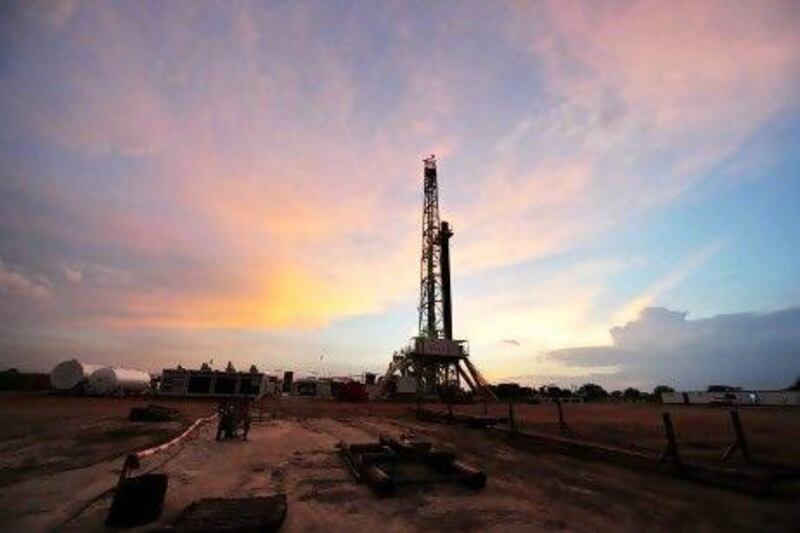The simmering dispute over Sudan's most valuable resource was forced on to the international stage this week, as Khartoum announced it had blocked exports from the south until an agreement on fees was reached.
Building Brics Emerging giants
Keep pace with the emerging economic powerhouses Brazil, Russia, India, China and South Africa Learn more
The growing rift has caused China, the biggest consumer of Sudanese oil, and owner of the company operating the pipeline, to call for a resolution of the conflict.
On Monday, Ali Ahmed Osman, Sudan's oil minister, said oil exports through the pipeline connecting South Sudan's oil fields with the Red Sea had been blocked since November 17.
The government in Khartoum had threatened to block the Greater Nile Oil Pipeline, South Sudan's only export route, last month, over claims its new neighbour owes it US$727 million (Dh2.67bn) in arrears in transit fees accumulated since the partition of Sudan on July 9.
About three quarters of Sudan's approximately 500,000 barrels per day (bpd) production is sourced in the south.
But landlocked South Sudan relies on the pipeline to export its crude, and discussions on a transit fee have come to no conclusion.
Khartoum insists on receiving $32 for every barrel that went through the pipeline since the partition up to the end of last month. South Sudan's government in Juba rejects this claim as too high.
"It's a figure that has no basis," Stephen Dhieu Dau, the South Sudanese oil minister, told Bloomberg News yesterday. Mr Dau claims the north owes billions of dollars for crude exported before the break up of Sudan.
Before the break up, the south and the north shared revenues on a 50:50 basis.
The blockade comes after Juba seized the southern assets of the national oil company Sudapet on November 8, calling it "a legitimate act of sovereignty". The move has intensified the rift between the two Sudans and Mr Osman said on Monday his government was considering legal action.
"Seizing the company's shares is completely illegal and Sudan has the right to sue the government in international courts," he said.
Yesterday China, the largest recipient of Sudanese oil and active in the country through a state-owned oil company, urged both parties to keep exports flowing.
"We believe that maintaining the normal production of oil is important for both South Sudan and Sudan," Hong Lei, a foreign ministry spokesman, said in Beijing.
"We are confident that the two governments will abide by their promises, ensure the stability and continuity of oil cooperation, and protect the lawful rights of Chinese businesses and the safety of their personnel."
China defied US sanctions to establish close ties with the regime of Omar Al Bashir, and is intent on building good relationships with South Sudan.
State-owned China National Petroleum Corporation holds stakes in three blocks in the south, after entering Sudan in 1996. It also produces at a field in the north, where it has three downstream projects.
Significantly, it operates the Greater Nile Oil Pipeline, and holds a 40 per cent stake in the stucture.
South Sudan's government has been exploring alternatives to the pipeline to free itself from Khartoum's grip, and announced last week was studying the feasibility of building a new pipeline running through its eastern neighbours.
It has also previously considered building a pipeline carrying crude to the Kenyan port of Lamu.





